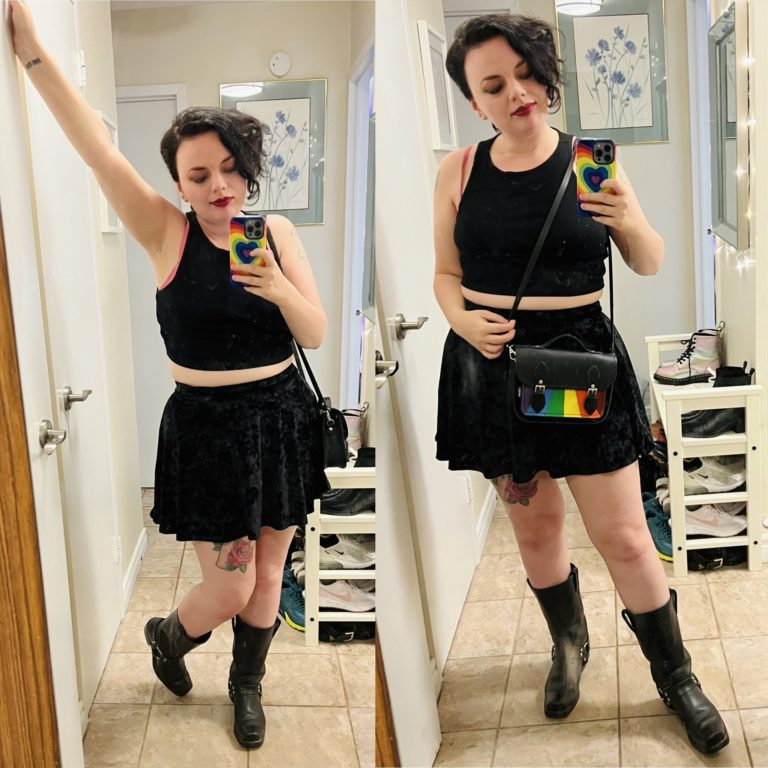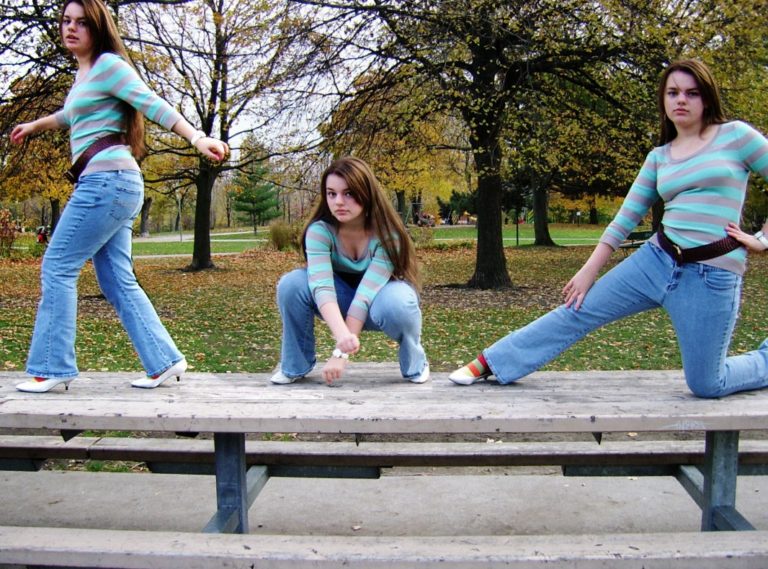
Being sexually dominant was an acquired taste for me, like coffee or scotch: it took some time for me to understand what was so delicious about it.
While I’m certainly no expert, I’ve experimented with various forms of dominance over the past several years, from verbal humiliation to financial domination, and I’ve gained a lot of confidence since I started. I can’t always conjure up a confident, dominant mood from thin air, especially when I’m stressed out or having a chronic illness flare-up, but I have learned a few tricks that make it easier for me to get into that dommy mindset. Here are some of them…
1. Unpack your people-pleaser tendencies
Not everyone struggles with this, but for some of us, it’s all too easy to get stuck in old people-pleasing patterns. While it’s possible to dominate someone based entirely on what they want, ultimately it’ll likely be a more satisfying scene for both of you if you’re able to tune into what you want, too.
Therapy was the most helpful thing for me in this regard; it taught me about the origins of my people-pleasing tendencies, and gave me tools for working through the guilt and shame I sometimes feel when prioritizing my own desires/pleasure, so that I can be a better and more assertive dominant.
2. Pick a role model
Sometimes it’s easier to be a dom if you imagine you’re someone else, at least at first. How would Shane from The L Word boss someone around in bed? What about Captain America? Dana Scully? Dolly Parton?
When you haven’t yet discovered (or created) your own “dom persona,” the one that feels most authentic to you, it can be helpful to “try on” other people’s personas and see how they feel. It’s a way of training your body and mind to feel comfortable in that dominant mode. If you’re not sure who to embody, dominatrix websites and kinky porn are great places to look for inspiration.
3. Explore in fantasy
Sexual fantasy is the best low-stakes way to experiment with things you’re curious about sexually. You don’t have to prepare anything or tell anybody – you just have to get yourself turned on and then let your mind wander where it will.
When gearing up to be dominant, pay special attention in your fantasies to what makes you feel powerful – which sex acts, positions, names, clothes, roleplay dynamics, etc. help you access a feeling of power? Sleuth out the parts of dominance that turn you on, and keep notes on these, so you can refer to them when discussing your desires with a partner.
4. Clothing & makeup & shoes, oh my!
They say that “clothes make the man”… I’d say, instead, that “clothes make the dom”! Or they can, anyway. Your choice of outfit, footwear, makeup, and even fragrance can have a big effect on how you feel in your body, and how you come across to others.
When I’m struggling to get into a dominant headspace, I’ll often slip into some ultra-high heels, or put on some fancy jewelry, or spritz myself with a formidable perfume. Even just a swipe of red lipstick can radically change how I feel about myself and how I carry myself. Aesthetic trappings may seem surface-level, but they can create change on a much deeper level, including in how dominant you feel.
5. Power poses
Move your body into a dominant-seeming position, and you’ll tend to feel more dominant. Science has established that certain “power poses,” like standing with your legs apart and your hands on your hips, actually tangibly affect your self-confidence.
Sometimes I’ll combine a power pose with a visualization when I’m trying to get into a dommy mood – like I’ll imagine I’m a queen looking out at a sea of her subjects, or a CEO addressing a boardroom full of subordinates. You can do this as a warm-up for a scene, or you can even incorporate power poses into a scene. Playing make-believe as an adult is underrated, if you ask me!
What are your favorite ways to tap into your dominant energy?
This post contains sponsored links. As always, all writing and opinions are my own.




